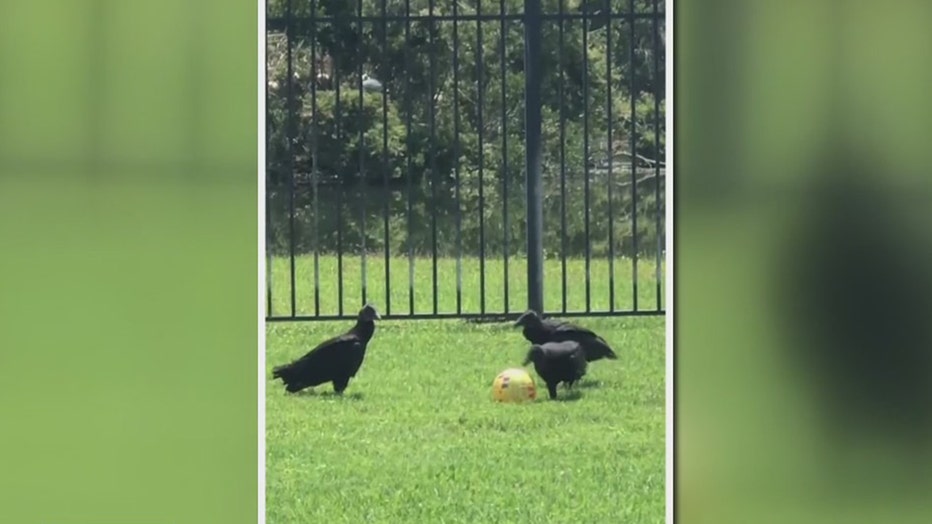Westchase neighborhood concerned over plan to remove vultures
TAMPA, Fla. - Residents in a Westchase neighborhood concerned with black vultures are now even more concerned about the plans to remove them.
They say the vultures have taken over the neighborhood for years causing damage to homes and cars.
"We’ll see vultures four or five of them in the middle of the street and they all nest behind us, probably 40, 50,60 of them nest there. And in the morning, you’ll hear thuds on your house, vultures don’t land like hummingbirds," Steve Netta said.
Steve Netta has lived in the neighborhood for 15 years and while he says it’s a problem that needs to be addressed; he’s now also worried about the tactics to being used to scare them off.

This week a USDA employee began using pyrotechnics or fireworks in the area behind his home that the vultures have made a home.
"There were probably a hundred birds back there that were in their natural habitat and weren’t what they were even going for," Netta said.
Animal rescue groups share in those concerns about the unintended consequences this could have,
"Not only are they affecting the vultures, but they’re also affecting every other bit of wildlife in the area that either you can see or not see," Nancy Murrah of Raptor Center of Tampa Bay said.
Also noting the importance of vultures to the environment.
"They are nature's garbage men. They are out there to clean up the dead animals and prevent the spread of disease simply by eliminating that from the area," Murrah said.
In a statement the USDA said:
"The plan is to have one employee nonlethally disperse the black vultures (there are no turkey vultures there, they are black vultures) using pyrotechnics over the period of up to two weeks. If that doesn’t work, then we may lethally remove a few vultures to create effigies – which are often created using dead vultures and are hung up in trees to discourage roosting as vultures will not roost near dead vultures. There are no plans to kill all the vultures. Effigies are used to reinforce nonlethal harassment techniques."

